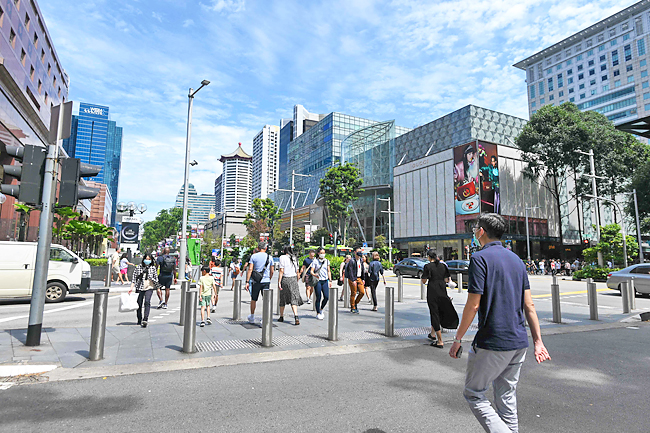CNA – Singapore’s core inflation rose further to 5.1 per cent in August, driven mainly by stronger increases in the prices of food and services, official data showed yesterday.
This is higher than the 4.8 per cent in July as the inflation figure inches towards a 14-year high.
The last time Singapore reported higher year-on-year core inflation growth was in November 2008, when it stood at 5.5 per cent.
Core inflation excludes accommodation and private transport costs.
The August figure of 5.1 per cent was slightly higher than a Reuters forecast of five per cent.
The headline consumer price index, or overall inflation, rose to 7.5 per cent year-on-year in August, surpassing the seven per cent reported in July.
“The rise in headline inflation largely reflected higher private transport inflation, in addition to the pickup in core inflation,” said the Monetary Authority of Singapore (MAS) and the Ministry of Trade and Industry (MTI) in a joint media release.

Overall inflation increased in August mainly due to higher inflation for private transport, food and services.
Food inflation came in higher due to steeper increases in the prices of both food services and non-cooked food, hitting 6.4 per cent in August.
Globally, supply chain frictions have eased slightly and some commodity prices have levelled off, MAS and MTI said.
But they added that global inflation is likely to stay elevated in the near term as key commodity markets continue to face supply constraints and labour markets in many major economies remain tight.
Additionally, the recovery in domestic demand in some regional economies as COVID-19 restrictions are eased could lead to higher inflation in these economies. Upward pressures on Singapore’s import prices could therefore persist.
“On the domestic front, the labour market remains tight, keeping wage growth strong,” MAS and MTI said.
“Amid firm consumer spending, businesses are likely to pass on increases in labour costs and the prices of fuel, utilities and other imported inputs to consumer prices.”
Accommodation inflation also picked up alongside a faster pace of increase in housing rents, hitting 4.7 per cent in August.
Services inflation rose to 3.8 per cent in August as the cost of holiday expenses saw a larger increase.
Private transport inflation rose to 24.1 per cent from 22.2 per cent in July due to a stronger pickup in car prices.
Prices of retail and other goods also registered a faster pace of increase, coming in at 2.9 per cent in August, as inflation for household durables and clothing and footwear edged up.
Meanwhile, inflation for electricity and gas dipped to 23.9 per cent in August, compared with 24 per cent in July, on the back of a smaller increase in gas prices.
For the full year, overall inflation is expected to come in at five per cent to six per cent, while MAS core inflation is projected to average at three per cent to four per cent.
“Fresh shocks to global commodity prices, as well as domestic wage pressures remain as upside risks to inflation,” said the authorities.





